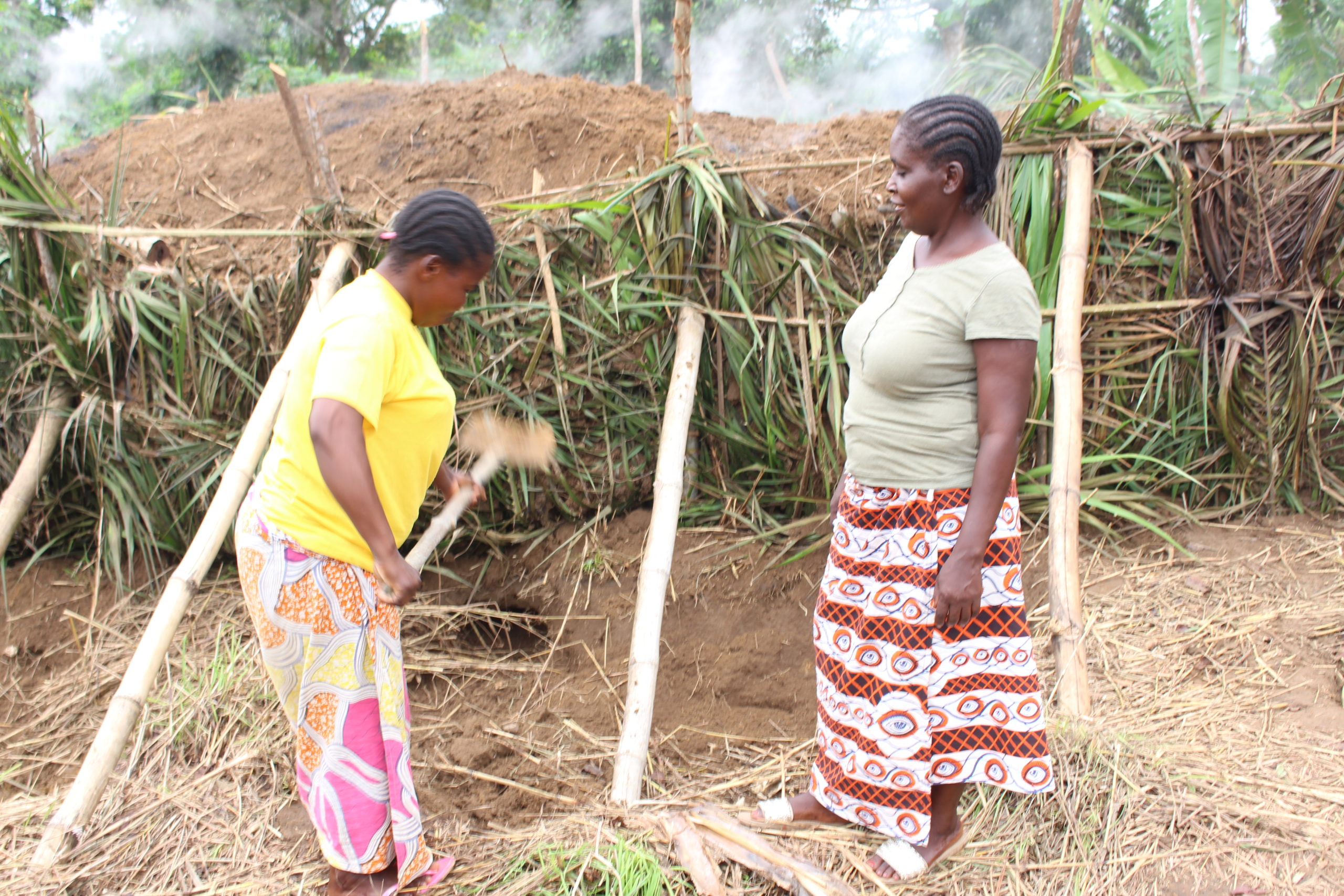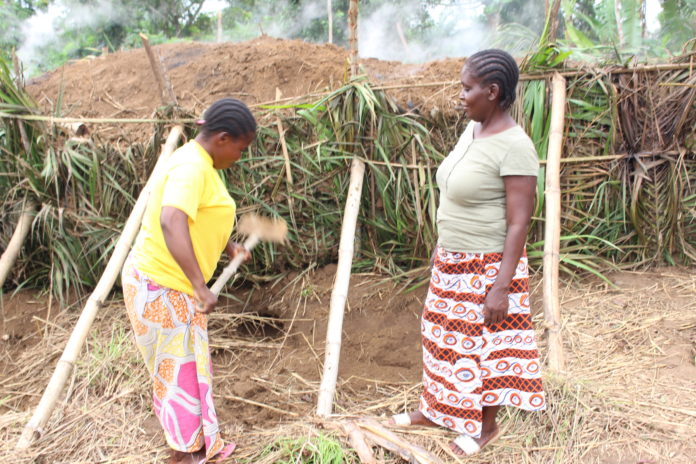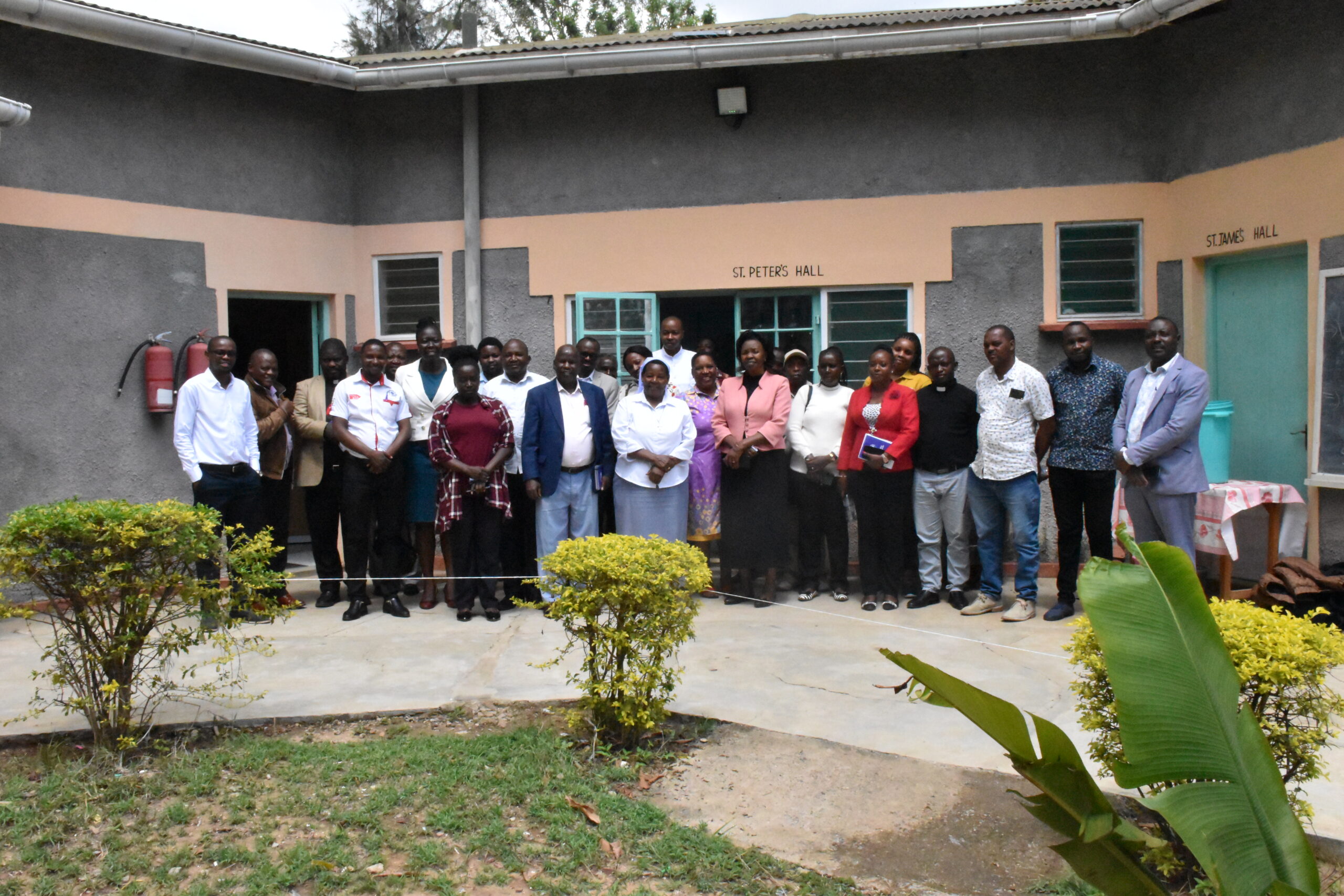By Rosie Pioth
Congo- Brazzaville: Bakekolo Eveline, a lady in her thirties, a mother of several children, has long stopped working in the fields. Now her household lives of the sale of the charcoal she produces herself.
“I know that cutting down trees is not good, but what can we do, we are in Pool, and in this village, this activity is the best since the young people have nothing to do, no other activity, ” she argues.
Like her, another inhabitant of Pool, a former militiaman, says that selling locally produced charcoal is now his only source of income. He took the opportunity to challenge the Congolese government.
Due to these activities, the once considered the granary of the city of Brazzaville, the Department of Pool can no longer boast of this name. And for good reason, the socio-political conflicts which shook the country for a long time have led local populations to lose interest in agriculture and to fall back on the most offering and most accessible market, charcoal and wood.
In the locality of Nkamou, located about 75 km from the city of Brazzaville, is an illustration of this. Artisanal logging, the production of firewood, fuelwood (charcoal) are activities practiced by most of the inhabitants of this region.

“The state needs to fix this problem; there is no school in the Pool. Our children suffer as well as our parents. We only make charcoal if we want to make some money. Because if you don’t make the charcoal, you can’t make money. And when you fly, your hand is cut off. And even the charcoal that we do if we see you with hair like mine, we arrest you on the pretext that you are a Ninja (Pastor Ntoumi’s militia) and when the police arrest you, they seize all the bags charcoal and take all the money. So the state must fix this problem as soon as possible.”
As a reminder, the locality of Nkamou like many localities located in the Pool is one of the victims of the socio-political events of 1997, 1998, 2000, and again recently in 2015, which shook this department. The sound of boots that have seen thousands of hectares of forests and trees disappear with axes and chainsaws to support the charcoal ovens that are legion in the region.
Asked whether there is a policy to prevent this phenomenon, Nina Cynthia Kiyindou, in charge of the Natural Resources and Forest Communities Rights program at the Congolese human rights observatory OCDH, explains that there is no specific policy regarding the fight against deforestation in the Department of Pool. On the other hand, there is the national REDD strategy, which was adopted and which has started to be implemented.
“To these various strategies, we can count the presence of projects to return to agriculture or even breeding set up by some inhabitants, “Kiyindou confirms.
All is not lost though, some individuals have started initiatives to help restore nature back to its glory. One such individual is Ruphin Kinanga , a young entrepreneur from Pool who decided to settle in Nkamou to create an agricultural and breeding center. He started this project pursued to persuade the inhabitants of this village to stop working with charcoal and return to farming.
“Since the end of the war, the populations no longer have the means to return to the fields and wait at least a year, so they have started producing charcoal, so we brought this project back to Nkamou to try to currently convert women charcoal producers into layer breeders, this is the project in brief, ”he explains.
This initiative, although welcomed by the population, has not yet experienced the enthusiasm desired by its promoter, let alone the hoped-for membership.
Chantal Loumouamou, a resident of Kamou, explains the difficulty of returning to agriculture immediately by the fact that her daily survival and that of her household depend on charcoal. Waiting for the vegetable crops to mature in order to resell them would be torture for her and for many of the villagers.
The quest or struggle for daily survival remains the main reason put forward by the inhabitants of Nkamou to justify the destruction of forests.
The destruction of the Pool’s forests by cutting for firewood and for the manufacture of fuelwood (charcoal) sufficiently demonstrates the human relentlessness on nature with the impacts and other consequences it has on the environment.
Nina Cynthia Kiyindou Yombo, Natural Resources Officer at the Congolese Human Rights Observatory explains, “The Department of Pool is among the most strategic departments because it is very close to Brazzaville. It is not uncommon to see after fifteen minutes ten to twenty trucks loaded with wood or charcoal in motion. This is to say that the question is really crucial as far as the Pool Department is concerned. The phenomenon of deforestation is here, there are areas where there was forest before and now there is no forest. The forest has disappeared. To say that the question arises acutely with regard to deforestation in the department of Pool.”
The situation in the village of Nkamou is not isolated. The entire Pool department is affected by deforestation. On a map found within the offices of the OCDH which relates to forest concessions and protected areas in the Republic of Congo, we can see that the department of Pool now has only two forests located in the villages of Ktembo and Bangou, a rather challenging situation regarding the region’s deforestation. A situation that also has an impact on the environment.
Requests for interviews with the ministry of tourism and the environment on the official policy of the Congolese State on the question were not successful until the time of the closure of this report.














